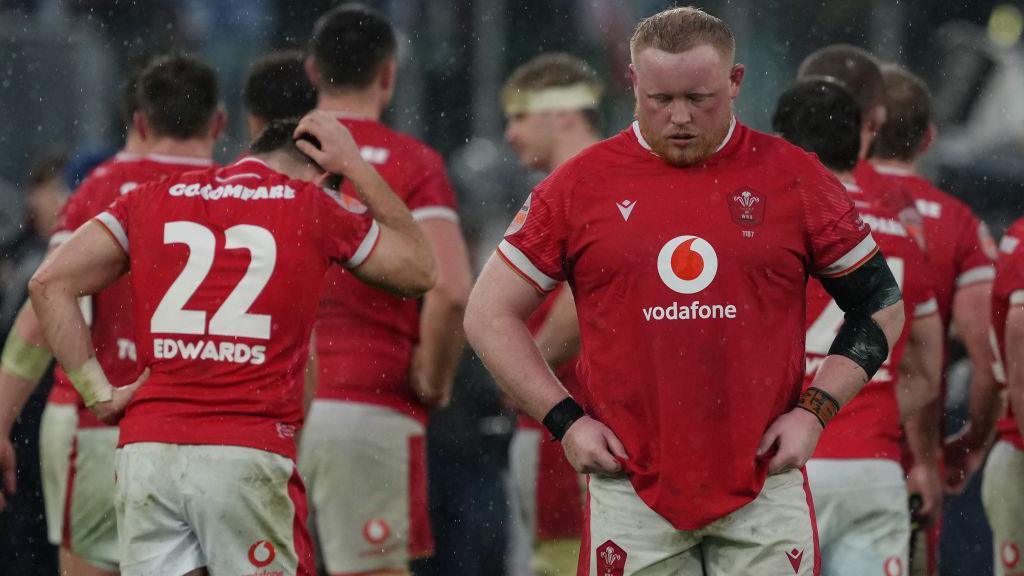What is the 'Triple Crown' and 'Wooden Spoon'?

Wales were the most recent recipients of the Wooden Spoon
- Published
Many are steeped in history, but not all come with bragging rights.
Here's a look at the various Six Nations awards and accolades.
What is the Triple Crown?
The Triple Crown is contested by England, Ireland, Scotland and Wales.
Should one of those teams beat the other three, they win the Triple Crown.
Though not named as such then, it was first awarded - to England - back in 1883 at the inaugural Home Nations Championship (the forerunner to the Six Nations).
Before 2006 there was no actual trophy, and it was referred to as the 'invisible cup'.
The most successful team in the Six Nations era (from 2000) are Ireland, with seven Triple Crowns. They will win it again should they beat Wales.
Scotland have yet to win the Triple Crown since the competition expanded to six teams in 2000 - they last won it in 1990.
Do France and Italy play for a trophy?
Yes - the Giuseppe Garibaldi Trophy.
That is a much newer addition to the Six Nations - it was introduced in 2007.
The trophy is named after an Italian general who was famous for the role he played in the unification of Italy.
Italy have only won the trophy twice - in 2011 and 2013.
What is a Grand Slam?
To win a Grand Slam, teams must win all five matches of their Six Nations campaign.
Ireland achieved the feat most recently - in 2023.
While the Six Nations winners do not necessarily have to win a Grand Slam, any team winning a Grand Slam will win the overall tournament.
That is because of the Six Nations bonus points system, which awards three extra points to a team that wins all of their matches.
France and Wales have won the most Grand Slams (four) of the Six Nations era.
What is the Calcutta Cup?
The Calcutta Cup is the oldest trophy in international rugby, contested by England and Scotland.
As its name suggests, the cup originated in India in the late 19th century, at a Calcutta rugby club formed of British expats.
After the rugby club disbanded, the remaining members decided to melt down the club's remaining funds, creating a trophy made out of rupees.
The trophy was then given to the Rugby Football Union (RFU).
It was in 1879 that England and Scotland first competed for the Calcutta Cup.
When the BBC broadcast the Calcutta Cup match in 1938, it was the first live televised rugby international.
To date, England have won 82 of the 130 matches played, external - but Scotland have been dominant in recent years, having won the past four.
Who 'wins' the Wooden Spoon?
'Winning' the Wooden Spoon isn't something to celebrate. And, no, there's no actual spoon involved.
The metaphorical award goes to the team who finish bottom of the table.
The idea of awarding a 'wooden spoon' is thought to trace back to the University of Cambridge, where one was given to the student who scored the lowest grade in a maths exam.
The term has been used in rugby since the late 19th century.
Only England and Ireland have avoided the wooden spoon in the Six Nations era, with Italy 'winning' it most.